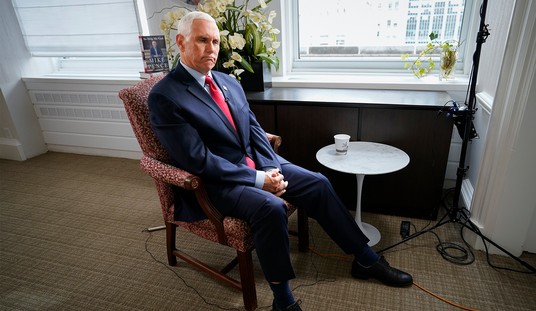Just how badly have Climategate and the failure of the UN climate change summit in Copenhagen hurt prospects for a global market in carbon “offsets”?
Camco International Ltd., bills itself as “a leader in demonstrating strong financial structuring and placement capabilities for carbon credits,” and is 19.5% owned by Al Gore’s Generation Investment Management. It was trading at 91 British pounds per share in April of 2007. Its shares, which trade on the London Stock Exchange, are now down in the 13.50 pounds per share ($20.56) range.
Climate Exchange Plc is the parent company of the Chicago Climate Exchange, a greenhouse gas market originally funded in part by the Joyce Foundation, on whose board sat Barack Obama. Its shares, which traded as high as 2000 British pounds a share back in August of 2008, have lost three quarters of their value and are now trading at about 500 pounds ($762) apiece on the London Stock Exchange.
The iPath Global Carbon Exchange Traded Note, “designed to be an industry benchmark for carbon investors,” is down 35% since its inception in June of 2008. With a market capitalization of just under $3.6 million and less than 600 shares changing hands on an average day, the instrument hasn’t attracted much investment attention.
But it’s doing better than the AirShares EU Carbon Allowances Fund, which shut down at the end of July 2009 after less than nine months in business.
“If there was a way, I definitely think you could make money hand-over-fist shorting this stuff,” said a fellow at the American Enterprise Institute and the Pacific Research Institute, Steven Hayward, who tracks environmental policy. He said the market for carbon offsets had plunged amid “eroding enthusiasm among policymakers for serious carbon constraints.”
In March 2010, two European carbon exchanges suspended trading amid concerns that some “certificates of emission reduction” were being illegally reused. Even Al Gore himself acknowledges that some carbon credits “fall into the ‘snake oil’ category” (talk about “an inconvenient truth”). Also in March, the governor of California, Arnold Schwarzenegger, asked the state’s Air Resources Board to give away most pollution allowances for free rather than auctioning them off.
For companies that sell carbon offsets or make markets in them, “whether they succeed or not is totally dependent on regulation,” said the managing director of Camino Energy, Mark Henwood. “If the regulation doesn’t come through, there isn’t going to be any business there.”
Without a “cap,” in other words, there isn’t much to “trade.”
Mr. Henwood said that investors in solar energy are better off than those investing in carbon offsets. At least at the end of the day, the solar guys will have some electric power to sell. In the carbon offsets market, “nothing of economic value” is being exchanged except something whose value is created by regulation, he said.
So is there a way for a savvy contrarian investor to cash in by betting against the liberal conventional wisdom on climate change, in the same way that John Paulson or Michael Burry made billions of dollars by betting against the mortgage-backed securities that were the product of liberal conventional wisdom that said every poor person should be a homeowner?
It might be possible, but it’s not easy, and it’s highly risky.
One risk is that you are too late to the party. Maybe the right time to bet against these credits or companies isn’t now, when the effects of Climategate and the failure of Copenhagen are already priced in. The time to do it would have been back in 2007 or 2008, when values were frothier.
Another risk is that even if cap and trade — “cap and tax” to opponents — doesn’t pass Congress, there are already markets for carbon credits outside of America. Some European Union countries have ratified the Kyoto treaty and are trading these credits, though in 2009 the EU handed out more free carbon allowances than industrial plants needed to comply with the emission caps. Other “voluntary” offsets will still be demanded by guilty private-jet users or companies seeking the public relations benefits of greening their image.
Some of the carbon-market companies also make markets in pollutants other than carbon that are already governed by either voluntary or mandatory regulations. The companies make the case that they work with industrial firms to reduce pollution in other ways than selling offsets. “Offsets is a small portion of our overall program,” said the director of communications at the Chicago Climate Exchange, Brookly McLaughlin. She said that carbon offsets amount to just 15% of the pollution reductions achieved by the climate exchange since 2003, with the rest accounted for by conservation gains by member companies who do things like increase efficiency or switch fuel.
In November of 2009, the Chicago Climate Futures Exchange — which, like the Chicago Climate Exchange, is a subsidiary of Climate Exchange Plc — launched a futures contract called the CFI-US-O. Each contract represents 1,000 metric tons of carbon dioxide. But there are limits on positions — 4,000 contracts — and trading volume has been low. Unless you have a special flair for it like Hillary Clinton, futures trading can be risky.
Finally, there is the risk that those betting against cap and trade in the financial markets may be miscalculating the chances in Washington. After Scott Brown’s election in Massachusetts, the conventional wisdom was that a health care overhaul was dead, but President Obama and congressional Democrats passed it anyway. After Climategate and Copenhagen, the conventional wisdom is that cap and trade is dead. But there are powerful forces still pushing this in Washington — not only the environmental lobby, but even J.P. Morgan Chase, whose CEO, Jamie Dimon, wrote in his annual letter to shareholders that the company is “a leader in sourcing, developing, and trading emission-reduction credits, primarily through our investments in ClimateCare and EcoSecurities.”
All it may take for the cap and trade idea to make an ObamaCare-style recovery is a bad summer heat wave in a media capital like New York or Washington. No matter that even some of those who believe that man-made climate change is a real problem think a gas tax or technological breakthroughs might be better ways to solve it. Betting against cap and trade is a wager that President Obama and a Democrat-controlled Congress will somehow resist the temptation to impose a vast new regulatory regime on energy consumption.
Good luck with that bet.









Join the conversation as a VIP Member